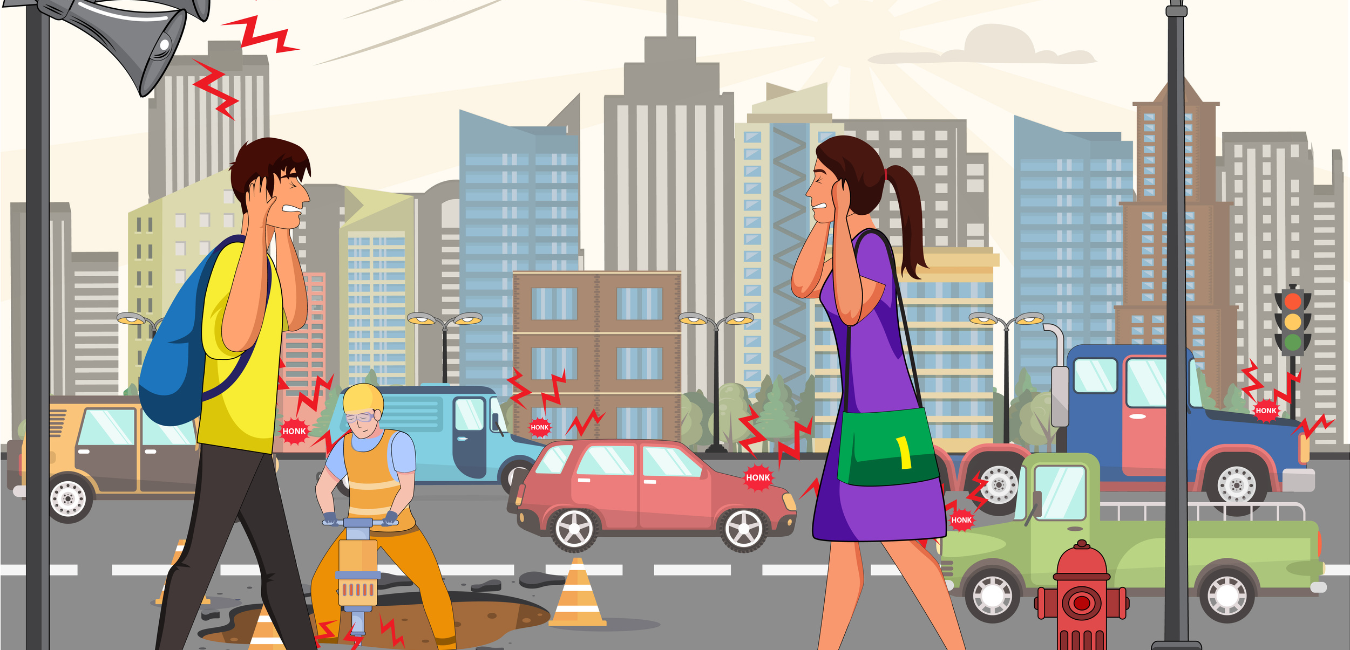Everything You Need to Know About Listening Fatigue
Can hearing loss be exhausting? If you feel tired after talking with others, it may not be caused by the speaker being boring. In such a case, you may want to examine your hearing. An estimated 4.6 million Canadians1 have mild hearing loss within the speech frequency range and may not know it. If you find hearing or communicating with others in a noisy environment stressful, you may be experiencing listening fatigue.
When someone experiences hearing loss, their brain must work harder than usual. Therefore, even a simple activity like having a conversation becomes tiring. The person needs to strain to watch television or follow a conversation continually. Since hearing is a part of everyday life, activities can feel more burdensome.
In this article, we will explore the correlation between exhaustion and hearing loss. Also, we will examine what steps to take to improve hearing.
What is listening fatigue?
Listening fatigue from hearing loss is caused by increased efforts to listen and comprehend others when they are speaking. Simple activities can trigger symptoms of listening fatigue. When you consider all the activities that require hearing, with hearing loss, you expend much more energy just to comprehend things around you.
Your hair cells in the ear are responsible for determining a sound wave’s frequency and pitch. When cells become damaged or die, your auditory system decreases its ability to translate the frequencies. Therefore, the brain works harder to decipher incoming communication.
How does the brain process sound?
In normal hearing, three brain parts work with your auditory system to translate sound and initiate speech. These areas are the following:
- Temporal Lobe: Found behind the ears and extending to both sides of the brain, this area contains the primary auditory cortex. The primary auditory cortex receives sensory stimuli from the inner ear.
- Broca’s Area: Contained in the lower portion of a person’s left frontal lobe, this area produces speech.
- Wernicke’s Area: Situated on the left frontal lobe at the lower part, this area houses speech comprehension.
Symptoms of Hearing Loss
The following actions frequently compensate for hearing loss:
- Requesting people to repeat what they have said.
- Heavily concentrating on hearing and understanding others.
- Trying to read lips.
- Guessing what was communicated or constructing meaning from words or sentences that were half-heard.
How does hearing loss make you tired?
When you can’t hear what is said, the brain works harder to process, provide meaning, and interpret the sounds heard. Thus, the brain becomes slower in applying information or putting effort towards activities. Listening involves a quickening of the heart rate, a rise in body temperature, and increased respiration.
It is possible for people to feel physically exhausted and mentally drained after straining to hear sounds during the day. Additional symptoms of listening fatigue can include:
- Mood changes
- Difficulty concentrating
- Reduction in performance at work
- Low energy
- Sleepiness
- Added stress
- Body pain and discomfort
- Inability to tolerate baseline noise levels (manifesting in apathy, perception of laziness, and rudeness)
While the cause isn’t completely understood, some speculation states that it is due to psychological sound perception. Those commonly at risk are people who avidly enjoy listening to music and work with loud noise, like construction workers, musicians, or military personnel.
How do you cope with reduced hearing?
Even for those with normal hearing, listening intensely can be tiring. A few tips for coping with listening fatigue can involve the following:
- Deep breathing: If you feel overwhelmed, frustrated, or stressed, take a few minutes to do some deep breathing exercises. It will assist in clearing the mind while decreasing blood pressure and stress.
- Take a break from noise: For those not wearing hearing aids, take a nature walk or stroll along a quiet street. Find a location to relax and close your eyes momentarily. Even if you are busy, find a quiet lunch spot to boost midday energy.
- Have a nap: A half-hour nap can often improve performance and alertness without making you groggy or interfering with nighttime sleep. Aside from the energy boost, you will benefit from having quiet time.
- Reduce background noise: Do this activity whenever you can. Distinguishing background noise from speech can become troublesome when you have hearing loss. The less background noise experienced, the less noise the brain and ears must process. When background noise is reduced, tuning into conversations becomes easier, and energy will increase.
What can you do to address listening fatigue?
Do you suspect that you or a loved one is experiencing listening fatigue? You should book an appointment with a hearing care expert. Hearing tests can assess if the fatigue is caused by hearing loss or another factor. Additionally, untreated hearing loss places you at risk for Alzheimer’s disease, depression, anxiety, social isolation, and dementia.
If the cause is a reduction in hearing, then hearing aids may be the best solution to eliminate listening fatigue. They make hearing surrounding sounds and conversations easier in various environments. You will no longer have to strain to hear sounds, thus reducing the energy spent simply listening.
Many of today’s hearing aids have features that reduce listening efforts by decreasing background noise and clarifying sounds. Hearing aids or cochlear implants lessen the effects of listener fatigue within a short duration (generally two days). To do this, gradually increase the time spent wearing the devices. While it may appear that continually wearing them is better, sometimes, a gradual increase can prove to be more effective.
Where can I go for a hearing test?
For a free hearing test, book an appointment with Hearing Solutions. With locations throughout Ontario, patients can buy their hearing aids at the exact location where they are tested. All our clinics are equipped to provide full evaluations and professional hearing aid fittings.
Appointments with an audiologist can be made on our website here.
Citations
- Atrach, M., Banks, R., Pineault, D., and Ramage-Morin, P.L. (2019, August 21). Unperceived hearing loss among Canadians aged 40-79. Statistics Canada. https://www150.statcan.gc.ca/n1/pub/82-003-x/2019008/article/00002-eng.htm
- Drummond, A., Holman, J., and Naylor, G. (2021, November 8). Hearing aids reduce daily-life fatigue and increase social activity: a longitudinal study. National Library of Medicine. https://www.ncbi.nlm.nih.gov/pmc/articles/PMC8579337/
- Botella, J. (n.d.). Listening fatigue: why hearing loss is exhausting. Hear.com. https://www.hear.com/resources/hearing-aids/listening-fatigue/
- Clason, D. (2020, September 14). Hearing loss and listening fatigue. Healthy Hearing. https://www.healthyhearing.com/report/52807-Hearing-loss-and-listening-fatigue








